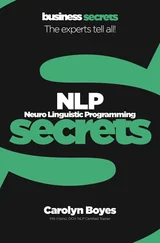Carolyn Boyes - Career Management
Здесь есть возможность читать онлайн «Carolyn Boyes - Career Management» — ознакомительный отрывок электронной книги совершенно бесплатно, а после прочтения отрывка купить полную версию. В некоторых случаях можно слушать аудио, скачать через торрент в формате fb2 и присутствует краткое содержание. Жанр: unrecognised, на английском языке. Описание произведения, (предисловие) а так же отзывы посетителей доступны на портале библиотеки ЛибКат.
- Название:Career Management
- Автор:
- Жанр:
- Год:неизвестен
- ISBN:нет данных
- Рейтинг книги:5 / 5. Голосов: 1
-
Избранное:Добавить в избранное
- Отзывы:
-
Ваша оценка:
- 100
- 1
- 2
- 3
- 4
- 5
Career Management: краткое содержание, описание и аннотация
Предлагаем к чтению аннотацию, описание, краткое содержание или предисловие (зависит от того, что написал сам автор книги «Career Management»). Если вы не нашли необходимую информацию о книге — напишите в комментариях, мы постараемся отыскать её.
Career Management — читать онлайн ознакомительный отрывок
Ниже представлен текст книги, разбитый по страницам. Система сохранения места последней прочитанной страницы, позволяет с удобством читать онлайн бесплатно книгу «Career Management», без необходимости каждый раз заново искать на чём Вы остановились. Поставьте закладку, и сможете в любой момент перейти на страницу, на которой закончили чтение.
Интервал:
Закладка:
Career Management
Secrets
The experts tell all!
Carolyn Boyes
Table of Contents
Cover Page
Title Page Career Management Secrets The experts tell all!
Learn how to manage your career Learn how to manage your career Most people fall into a career by accident. They might enjoy success or find themselves stuck in a job that’s not fulfilling. By contrast, if you manage your career you take control of what you do, whether that’s climbing the corporate ladder, starting your own business or perhaps going part-time. I have spent more than a decade helping people all over the world decide what to do with their lives. Many of the people I coach have already worked for years, and some are just starting out. Surprisingly, it doesn’t seem to matter what age people are, or where they come from or how successful they have been. Most people face the same sort of issues in trying to decide what to do next. They generally haven’t spent enough time focusing on what work suits them best, what their long and short term goals might be and how best to put these into action. Even some of those who are successful know some of the secrets but forget others. I am no different. I had a successful first career in international business before making a career change, and I had to find out many of these secrets for the first time. That’s why you will find 50 secrets here, divided into seven easy-to-follow chapters: • Take control. Suggests that you step back and take a look afresh at who you are and what’s important to you. • Dare to dream. How to create goals that are right for you. • Be a rising star. Lets you into the secrets of how to get promoted and rise within an organization. • Market yourself. Shows the importance of making yourself known in your career in order to achieve what you want. • Create a life balance. Helps you explore what to do if stress is getting to you and you want a change. • Be ready for change. Gives you key pointers for any successful career change. If you want to change or are forced to change careers this is what to do next. • Be entrepreneurial. Explains what will make you successful if you decide to leave paid employment and start up on your own. If you follow these seven chapters of secrets, you will know how to manage your career sucessfully. Create an achievable career plan and you are already on your way to a well-managed career for the rest of your life.
Take control Take control Start your career management by getting to know yourself. Applying the secrets in this first chapter will allow you to take a step back and think about not only what you are good at but also what motivates you. You can use this knowledge at every stage of your career to plan your next steps.
1.1 Be an entrepreneur 1.1 Be an entrepreneur Do you take responsibility for your career or do you let your career just happen to you? In the old way of doing things you would leave school or university and expect to have a job for life. But with a changing world you need to stop and take stock. The world is changing so rapidly now that there is no guarantee you will have a job for life, nor that the company you join will continue to exist, nor even that your industry will still exist in the next decade or so. There is only one thing you can do in a world like this, and that is to be an entrepreneur. Entrepreneurs assume that they will have to make their own fortune (and I mean fortune in the sense of both luck and money). Entrepreneurs don’t let things happen to them, they make things happen for them. This can be expressed by an equation: cause > effect. one minute wonder Take a step back. Think about where you are in your career right now. Decide to make your career successful and fulfilling every day. You are in charge. “The greatest discovery of my generation is that a human being can alter his life by altering his attitude of mind” William James, psychologist • On which side of the equation are you? Do you cause the situations you are in or are you generally at the effect of what other people do? Are you an entrepreneur or are you passive ? • Decide for yourself. You can use the equation cause > effect as a reminder to take responsibility for your career decisions. The self-employed are entrepreneurs. Every day, they take responsibility for making their careers as successful as possible. On the other hand, many employees of both large and small companies fall into the habit of being passive. They turn up to work on time and assume that as long as they do everything adequately, then their working lives will continue at an even pace, and they will always be paid until 30 or so years later the career comes to a close. In the new world of rapid change this isn’t enough. Every employee needs to be ‘at cause’ for their career. You need to think like an entrepreneur if you want to make the right kind of progress in your career.
1.2 Take a personal inventory 1.2 Take a personal inventory One of the first things you can do to get on track in your career is take a personal inventory. This means looking at what you are really good at. Include not only your work skills and knowledge but also your natural talents and personal strengths. The most thorough way to do this is to list each job role or activity you’ve carried out in the past and analyse each in turn. Think about the skills you used as well as any knowledge you gained. You will probably identify certain skills that you use consistently more than others. case study The first job Sally had was in insurance. She had to deal with numbers and information all day long. She was bored and constantly passed over for promotion. Sally spent 10 years thinking she would never have much of a career. Then her company went through hard times and her job was made redundant. Sally took the opportunity to take a hard look at her skills and experience. She took a psychometric test, which confirmed that she needed a job focused on people. Now she works in a small company doing direct sales. “My biggest skill is in talking to people,” she says. “I feel much happier and I have been so successful that I was promoted after a year!” Next, look at the broad areas below. How do you rate your own skills in each of the areas: above average – good – average – below average? Write down the results. • People. For example, influencing people, persuading, supporting, helping, negotiating with, selling to, entertaining or teaching them. • Ideas. Being innovative, experimental, visionary or creative; being able to think well in the abstract, about future possibilities; how to change things for the better or improvise, design. • Things. For example, manual work, dealing with machinery or equipment, using tools, having practical skills. • Data. For example, handling details of numbers or information, interpreting and presenting data, IT, organizing and administrating. Compare your list of the skills you have used in the past to the list of what you are good at. You can then make a new list combining the two: what you are good at and what you have experience in. This gives you an inventory of the strengths you will be selling in your career. Find out whether you are naturally better with people, ideas, things or data.
1.3 Discover your STARs 1.3 Discover your STARs What have you done in your career so far? What have you done that you are proud of? An achievement is something you have undertaken with a result attached. If you know what’s worked for you in the past, you can create more of the same type of achievement in the future and form a focused vision for your career. The word achievement can sound quite scary to a lot of people. They tend to say, “I haven’t achieved anything” because an achievement sounds as if it should describe something huge like climbing Everest or becoming CEO of a company.
Интервал:
Закладка:
Похожие книги на «Career Management»
Представляем Вашему вниманию похожие книги на «Career Management» списком для выбора. Мы отобрали схожую по названию и смыслу литературу в надежде предоставить читателям больше вариантов отыскать новые, интересные, ещё непрочитанные произведения.
Обсуждение, отзывы о книге «Career Management» и просто собственные мнения читателей. Оставьте ваши комментарии, напишите, что Вы думаете о произведении, его смысле или главных героях. Укажите что конкретно понравилось, а что нет, и почему Вы так считаете.












